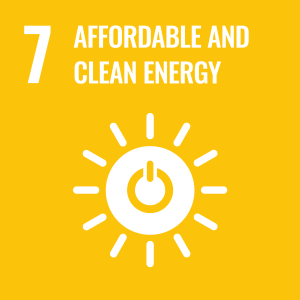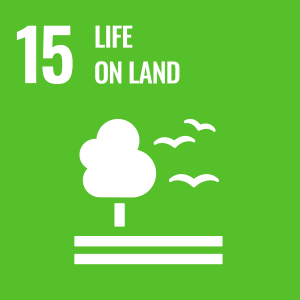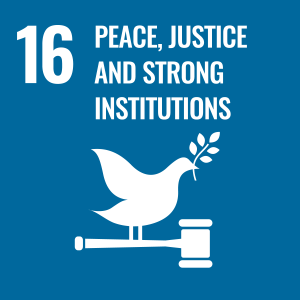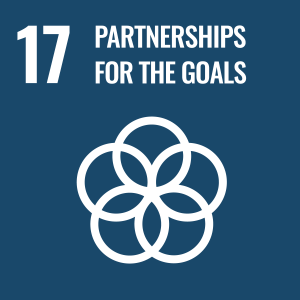
Dr Feja Lesniewska
Academic and research departments
Surrey Law School, Surrey Centre for International and Environmental Law.Sustainable development goals
My research interests are related to the following:











Publications
In this chapter, I make a case that the core objective for (environmental) law researchers in the coming decades, especially in developed and emerging economies, must be to actively contribute to radically transforming the dominant unsustainable linear take–make–waste economic model. The current economic system is based on unsustainable natural resource and material demand perpetuated by an entanglement of laws and regulations woven by powerful elites, especially in the Global North, since colonialism. By 2019, more than 100 billion tonnes of resources – everything from metals, minerals and fossil fuels to organic materials from plants and animals – entered the global economy; equivalent to 1.7 Earths. Meanwhile, approximately 2.12 billion tonnes of waste has been generated throughout the supply chain from extraction to end of use. Current predictions do not anticipate a significant reduction in demand for either the extraction of resources or the generation of waste globally in the coming decades.
This book explores the role of law and policy in circular economy transitions and their impacts on justice, including on distributional equity and recognition and procedural rights, especially for people already marginalised under the current dominant economic system. Amid increasing demand for virgin raw materials, and unsustainable consumption and waste disposal that are driving the global ecological and climate crisis, there are growing calls to urgently transition to circular economies. Despite an increasing number of circular approaches being adopted, implemented, and integrated in national and local laws and policies, the number of commercially successful business stories remains isolated. Moreover, questions about whether circular economy laws and policies are delivering fair and just global outcomes need to be addressed. This book examines this significant knowledge gap to understand legal experiences, including justice and equity issues in the global context, so that these can inform wider design and implementation. The book begins by explaining the concept of a circular economy and its context within wider issues of sustainable development and justice. The first part of the book then examines the legal context of the circular economy by analysing legal forms in practice and those recommended in wider scholarship before considering how these could impact on existing inequity and injustices globally. The second part delivers an empirical understanding of the implications of the law on circular economy approaches and the global equity and justice dimensions through two case studies on solid waste management and forestry. The final part addresses legal opportunities and challenges for wider implementation of circular economy approaches that incorporate justice into its framing. This book will be of great interest to students, scholars, and practitioners of environmental and natural resource law and policy, circular economy, industrial ecology, natural resource management, and sustainable development more broadly.
The implementation of the Internet of Things (IoT) is central to what the World Economic Forum has coined the ‘Fourth Industrial Revolution’; a technological revolution built upon cyber-physical systems that will blur the lines between the physical, digital and biological spheres. Novel interconnections will emerge as a result, challenging traditional relations and modes of governance. However, a central feature of the IoT is that the implications of cyber (in)security are no longer abstract. The IoT also returns us to the world of kinetic effects in international relations; more familiar territory for IR. The resulting cooperation and coordination challenges are transboundary in nature, occur at multiple levels across sectors, between institutions, and will impact all actors, both public and private, in complex, often highly politicised ways. In this article we argue that advances in global climate governance appear to be offering an early model of a consensual rules-based approach within the existing international order that provides space for advancing agility, flexibility, and polycentrism to meet the demands of ‘wicked problems’ like the cybersecurity of the IoT. Perhaps one of the most important lessons to be drawn across from climate governance is the role of robust mechanisms for knowledge exchange – specifically between the technical and policy communities.
Among the numerous causes of soil degradation, one of the most severe and difficult to reverse is land take. Land take results in the loss of valuable ecosystem services that negatively impact soil health, especially in agricultural areas. The main drivers of land take are increased provision of housing, schools, hospitals, industrial and commercial sites, transport networks and infrastructures, mines, quarries and waste dumpsites. Globally, the rate and scale of land take is increasing. Given the impact on soil ecosystem services such as the carbon, hydrological and nitrogen cycles, preventing agricultural land take is essential if the triple planetary ecological crises of climate change, biodiversity loss and pollution are to be addressed. Most countries use sustainable management techniques to limit land take by development projects. In this opinion paper, we argue that the circular economy concept could help to establish an alternative perspective on how to understand and address the agricultural land take problem. Law and policy need to foster a systemic transition to a circular economy throughout the entire construction sector’s multiple material life cycles if it is to significantly reduce land take. We use England as a case study to show how the UK government can revise and build on current policy to enable a transition to a more circular construction sector. The case study provides valuable lessons for other countries at a crossroad on land use policy on how fostering a circular construction economy can reduce land take and maintain agricultural soil’s ecological services.
